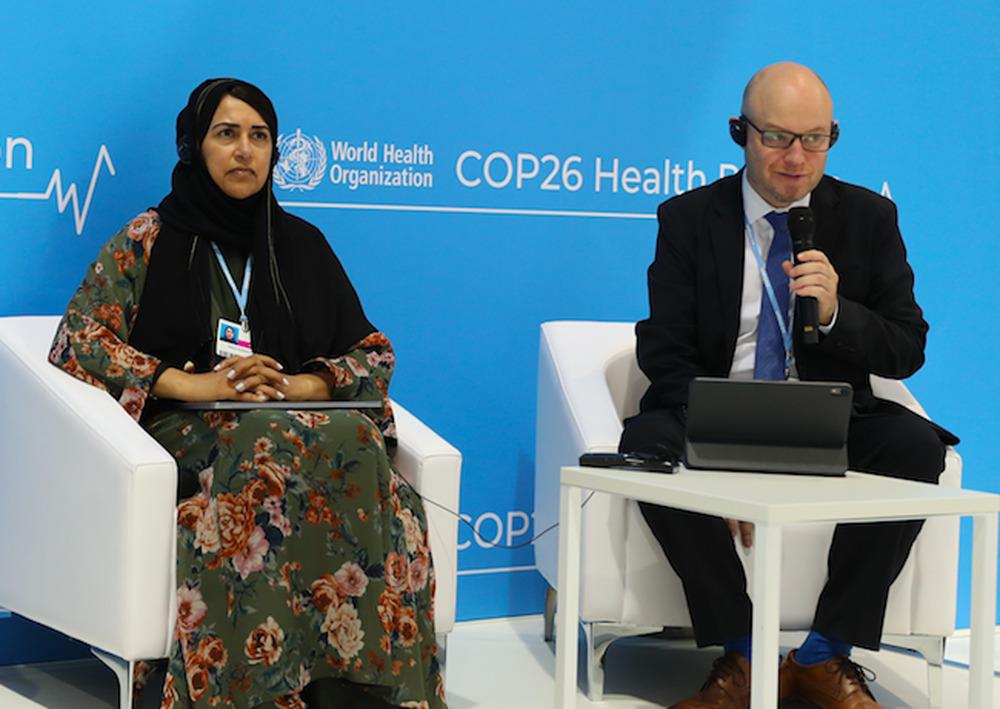
Qatar - Govts worldwide should address climate change as public health emergency: WISH CEO at COP26
(MENAFN- The Peninsula) Doha: The World Innovation Summit for Health (WISH), Qatar Foundation's global health initiative, recently participated in the 26th United Nations Climate Change Conference in Glasgow, Scotland.
The underlying message of WISH's presence at the event was to stress the importance of tackling climate change in the context of setting and implementing effective healthcare policies.
Speaking at COP26, Nick Bradshaw, Director of Partnerships and Outreach at WISH, said:“Two issues currently dominate the global news agenda; a health emergency in the form of COVID-19, and an urgent climate emergency; two vitally important issues, and in this case, two distinct issues. But if we always think of health and climate change as two challenges that need to be tackled separately, then we are missing a critical link. The two are intimately connected with the effects of climate change and the drivers of it, such as pollution, having a massive impact on people's health.”
Sultana Afdhal, CEO of WISH, added:“Climate change is a public health emergency as it directly affects the social and economic determinants of health. WISH strongly believes that governments must put tangible measures in place to act on climate change right now, and they must work with the healthcare industry in order to do so. In fact, the healthcare industry, with its 170-million-strong global workforce and high level of public trust, holds tremendous market power to lead the change towards creating environmentally sustainable societies.”
Underlining the importance of setting effective policies to mitigate the effects of climate change that specifically occur in arid regions of the world, WISH presented the findings of its 2020 report, titled Protecting Health in Dry Cities.
In presenting the findings of the report, Afdhal commented that the challenges of clean water access and heat management are amplified by climate change, which has already resulted in rising temperatures and increased intensity, duration, and frequency of heatwaves, as well as reduced precipitation in regions including the Middle East—trends that are expected to continue. Climate projections suggest that heat-related mortality risk in this region will increase two to three-fold in the coming decade.
She highlighted that the health challenges of dry cities are unique, such as the scarcity of clean water and lower agricultural output, faster spread of non-communicable diseases like mental illnesses and kidney damage, and poor child development due to malnourishment.
The evidence-based recommendations that WISH presented to promote the design of healthy dry cities included greening public spaces through xeriscape gardening, and artificial shading to cool the environment and promote outdoor physical activity. Nature-based solutions in urban design, such as creating tree canopies that are known to intercept solar radiation and reduce land temperature, are another example.

Legal Disclaimer:
MENAFN provides the
information “as is” without warranty of any kind. We do not accept
any responsibility or liability for the accuracy, content, images,
videos, licenses, completeness, legality, or reliability of the information
contained in this article. If you have any complaints or copyright
issues related to this article, kindly contact the provider above.

















Comments
No comment